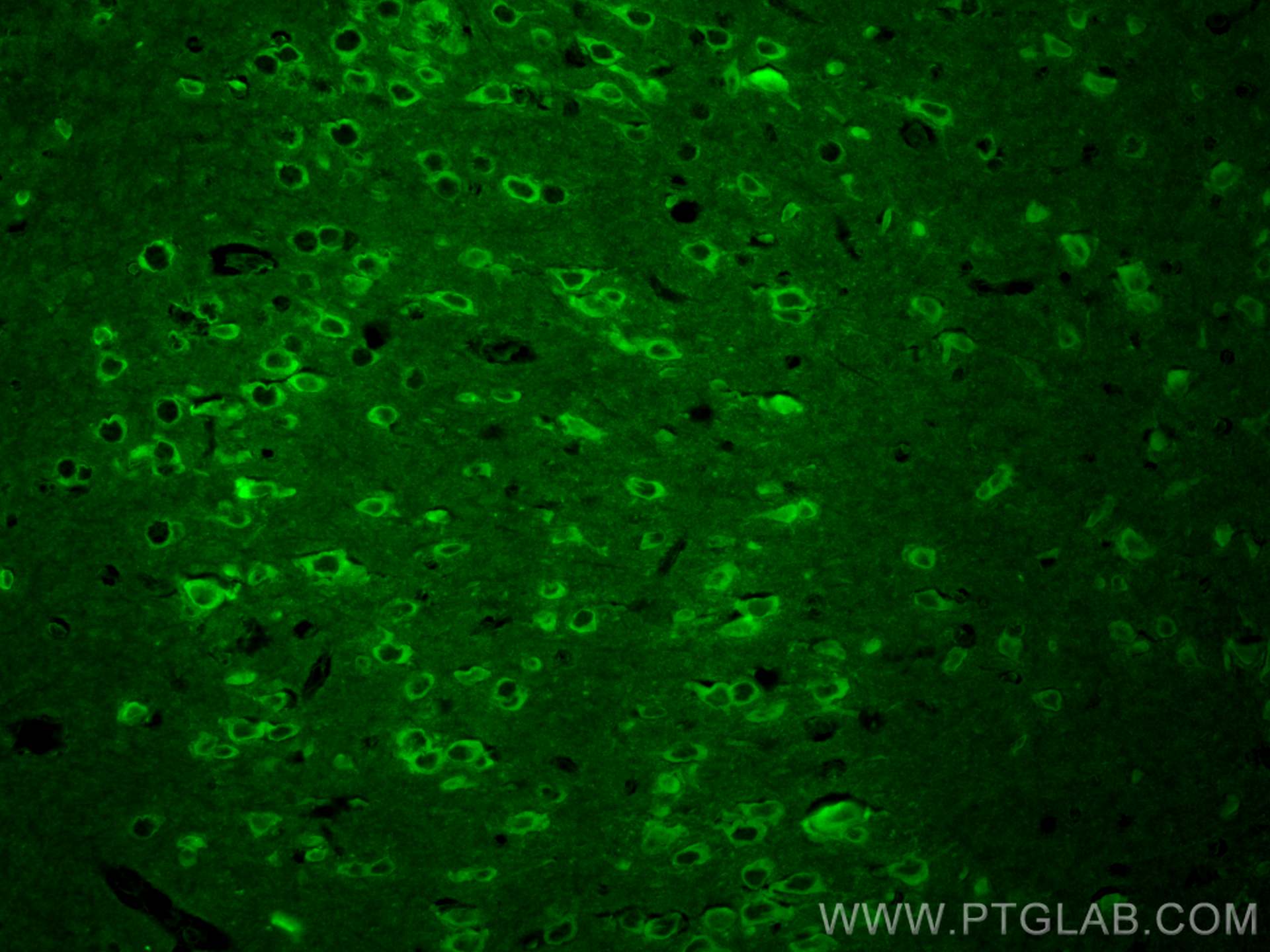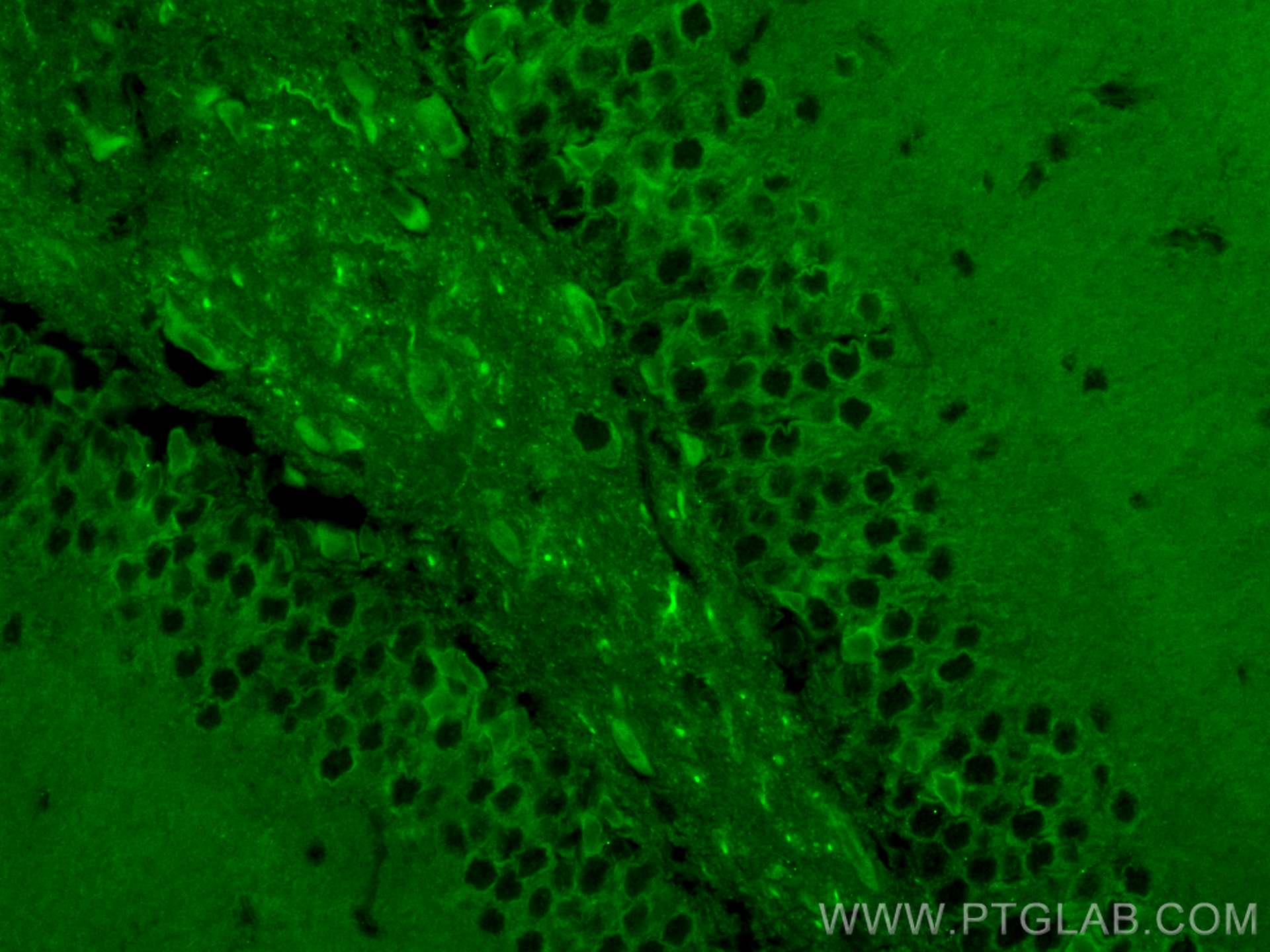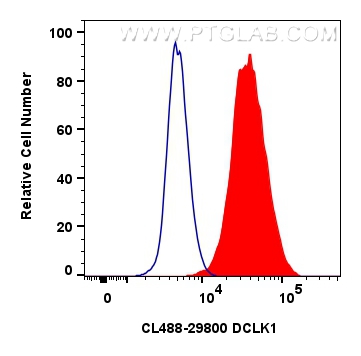验证数据展示
经过测试的应用
| Positive IF-P detected in | mouse brain tissue |
| Positive FC (Intra) detected in | Neuro-2a cells |
| Positive FC detected in | Neuro-2a cells |
推荐稀释比
| 应用 | 推荐稀释比 |
|---|---|
| Immunofluorescence (IF)-P | IF-P : 1:50-1:500 |
| Flow Cytometry (FC) (INTRA) | FC (INTRA) : 0.80 ug per 10^6 cells in a 100 µl suspension |
| Flow Cytometry (FC) | FC : 0.80 ug per 10^6 cells in a 100 µl suspension |
| It is recommended that this reagent should be titrated in each testing system to obtain optimal results. | |
| Sample-dependent, Check data in validation data gallery. | |
产品信息
CL488-29800 targets DCLK1 in IF-P, FC (Intra) applications and shows reactivity with Human, mouse, rat samples.
| 经测试应用 | IF-P, FC (Intra) Application Description |
| 经测试反应性 | Human, mouse, rat |
| 免疫原 | DCLK1 fusion protein Ag32007 种属同源性预测 |
| 宿主/亚型 | Rabbit / IgG |
| 抗体类别 | Polyclonal |
| 产品类型 | Antibody |
| 全称 | doublecortin-like kinase 1 |
| 别名 | DCAMKL1, DCDC3A, DCLK, DCLK1, doublecortin like kinase 1, KIAA0369 |
| 计算分子量 | 82KD |
| 观测分子量 | 48 kDa, 82 kDa |
| GenBank蛋白编号 | NM_004734 |
| 基因名称 | DCLK1 |
| Gene ID (NCBI) | 9201 |
| RRID | AB_3672840 |
| 偶联类型 | CoraLite® Plus 488 Fluorescent Dye |
| 最大激发/发射波长 | 493 nm / 522 nm |
| 形式 | Liquid |
| 纯化方式 | Antigen affinity purification |
| UNIPROT ID | O15075 |
| 储存缓冲液 | PBS with 50% glycerol, 0.05% Proclin300, 0.5% BSA , pH 7.3 |
| 储存条件 | Store at -20°C. Avoid exposure to light. Stable for one year after shipment. Aliquoting is unnecessary for -20oC storage. |
背景介绍
DCLK1 (Serine/threonine-protein kinase DCLK1) is also named as DCAMKL1, DCDC3A, KIAA0369 and belongs to the CAMK Ser/Thr protein kinase family. It is a microtubule-associated kinase that can undergo autophosphorylation and it also has microtubule-polymerizing activity that is independent of its protein kinase activity (PMID: 11124993). It plays a unique role in mitotic spindle integrity during early neurogenesis in radial glial cell proliferation and their radial process stability. DCLK1 is a unique marker for distinguishing tumor stem cells from intestinal normal stem cells (PMID: 23202126). This protein has 4 isoforms produced by alternative splicing with the molecular weight of 82 kDa, 81 kDa, 47 kDa and 48 kDa.
实验方案
| Product Specific Protocols | |
|---|---|
| IF protocol for CL Plus 488 DCLK1 antibody CL488-29800 | Download protocol |
| Standard Protocols | |
|---|---|
| Click here to view our Standard Protocols |


